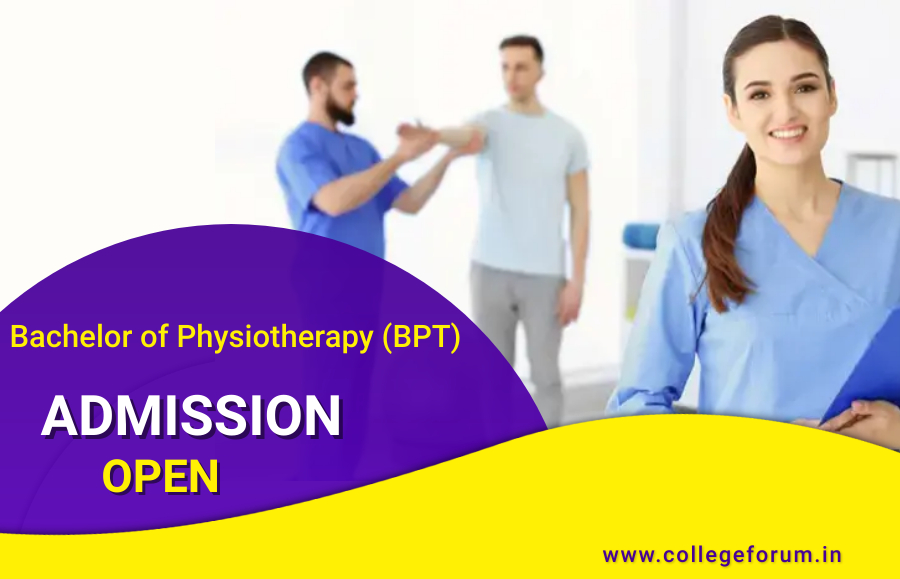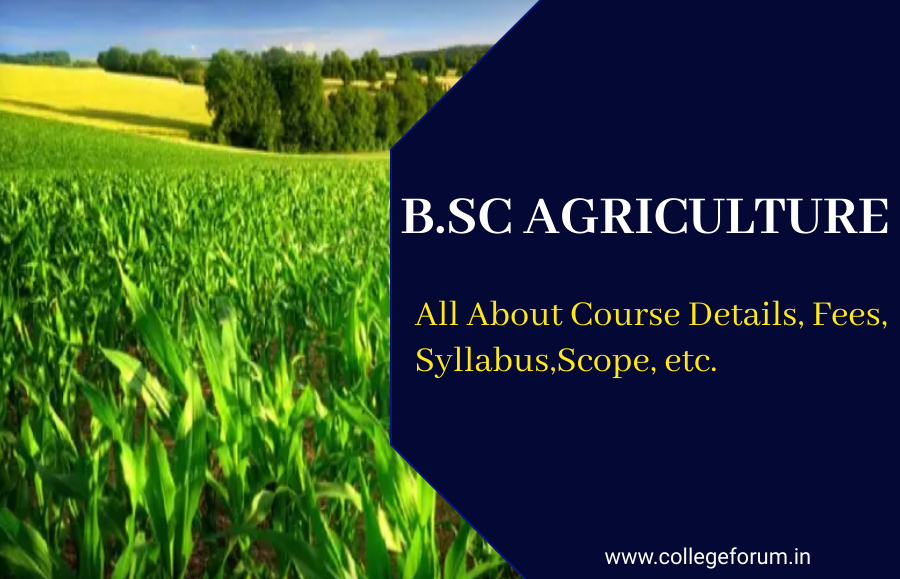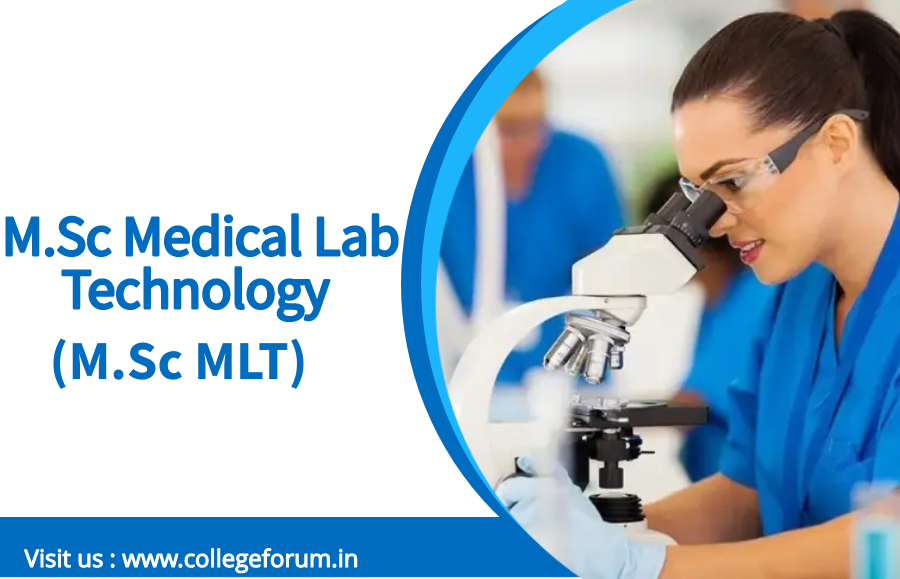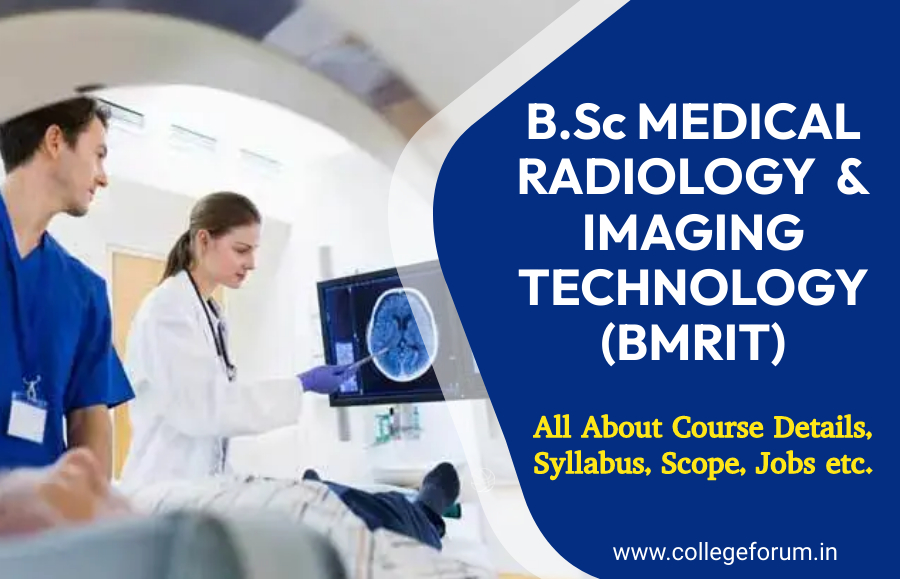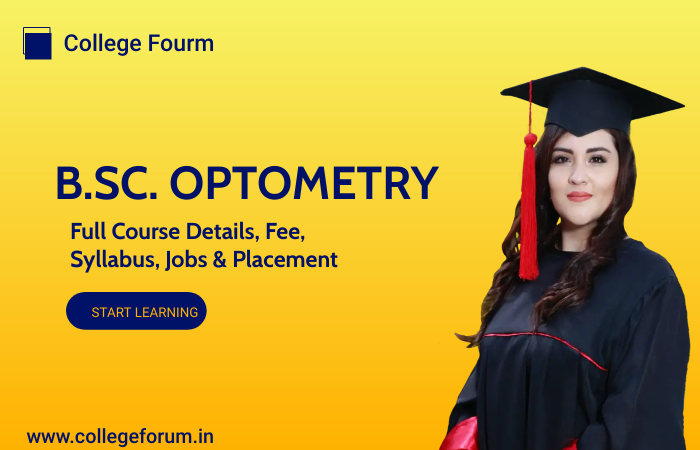About M.Sc Medical Lab Technology (M.Sc MLT) M.Sc in Medical Lab Technology or M.Sc MLT is a two-year full-time postgraduate program for those who want to build their career in the field of Medical Lab Technology. It is a job-oriented course so it becomes the first choice of the students. In this course, we study the diagnosis, prevention, and treatment of a disease through the use of clinical lab tests. This course trains the student how to examine and analyze blood, body fluids for bacteria, parasites, and other microorganisms and other specimens using precision lab instruments, like microscopes and automated analyzers. A few significant ideas shrouded by the program in this course are Chemistry, Human Biology, Organic Chemistry, Hematology, Bacteriology, and Medical Technology. Coursework covers the ID of pathogenic microorganisms and their illness processes. Eligibility Criteria of M.Sc MLT course The Candidate should be a Graduate in Medical Lab Technology or Bio-Chemistry/ Chemistry as the main subject with biology as the ancillary subject or equivalent degree with a minimum of 50% marks. Admission Process in M.Sc MLT The Admission Process in M.Sc Medical Lab Technology (M.Sc MLT) is different in every college or institute. Some colleges prefer direct admissions in M.Sc MLT courses while someone provides admission based on scores obtained in entrance exams. Graduation Based Merit is also used in colleges to offer admissions. Key Highlights Name of Course M.Sc Medical Lab Technology (M.Sc MLT) Duration of Course 2year Course Fee Approx 65000 to 70000 per year Essential Eligibility Criteria Graduation in Relevant field (Medical Lab Technology/Bio-Chemistry or equivalent) Job Prospectus Medical Technologist, Laboratory Director, Hospital coordinator, Health care administrator, Sr. Test / Quality Assurance (QA) Engineer (Computer Software), Senior Systems Analyst, Medical Laboratory Scientist Employment Sectors Clinics, Hospitals, Diagnostic Labs, Nursing Homes, Medical Research Centers, Public Health Centers, Quality Assurance Companies Salary Package INR 10-15 Lakhs (Annually) Further process of Higher Education PHD Job Prospects & Career Opportunities After M.Sc MLT After completing the MSc MLT course, the candidate can apply to Hospitals, Clinics, Industries, Health Care Centers, Research Centers, and Medical Labs. He/She is also eligible for applying for jobs in the Public and Private Sectors of the Medical Industry. If the candidate wants to continue their Higher studies, then he/she can apply for the PG diploma program or Ph.D. program. Because a certified course or additional degree in the same field can boost not only your job profile with higher salaries but also enhance your skills, knowledge, and experience. After MSc MLT, the candidate can work as a Medical Lab Technologist, Research Scientist, Health Care Officer, Safety Officer, Drug Safety Associate Medical Lab In-charge, etc. M.Sc Medical Lab Technology (M.Sc MLT) Syllabus M.Sc MLT First Year Syllabus First Semester Second Semester Clinical Biochemistry Diagnostic Biochemistry & Organ Function Test Bio-Physics & Human Physiology Histopathology and Morbid Anatomy Techniques Immunology, Vaccinology and Transplantation Technology Cytology & Cytogenetics Medical Microbiology Diagnostic Microbiology & Immuno Haematology Clinical Haematology & Blood Banking Technology Human Genetics & Human Genome M.Sc MLT Second Year Syllabus Third Semester Specialization in (Pathology with Haematology) Specialization in (Pathology with Clinical Biochemistry) Specialization in (Pathology with Clinical Microbiology) Clinical Haematology Non-Neoplastic Advances in Biochemical Sciences General Issues in Clinical Microbiology Clinical Haematology Neoplastic Intermediary Metabolism & Metabolic Disorders Diagnostic Microbiology Immuno hematology & Advanced Hematologic Techniques Diagnostic Enzymology Instrumentation & Techniques in Medical Microbiology Fourth Semester Project Salary Packages After M.Sc Medical Lab Technology (M.Sc MLT) After completing of M.Sc MLT course, the candidate earns up to 4lac to 6 lac per annum at an entry-level job. When he/she gains experience, knowledge, and skills in the relevant field, then the candidate gets the highest salary package. Job Profile Average Salary Medical Lab Technologist Rs 5 Lac per Annum (Approx) Senior System Analyst Rs. 8 Lac per Annum (Approx) Drug Safety Associate Rs. 6 Lac per Annum (Approx) Senior Biomedical Analyst Rs. 8 Lac per Annum (Approx) Healthcare Administrator Rs.10 Lac per Annum (Approx)
